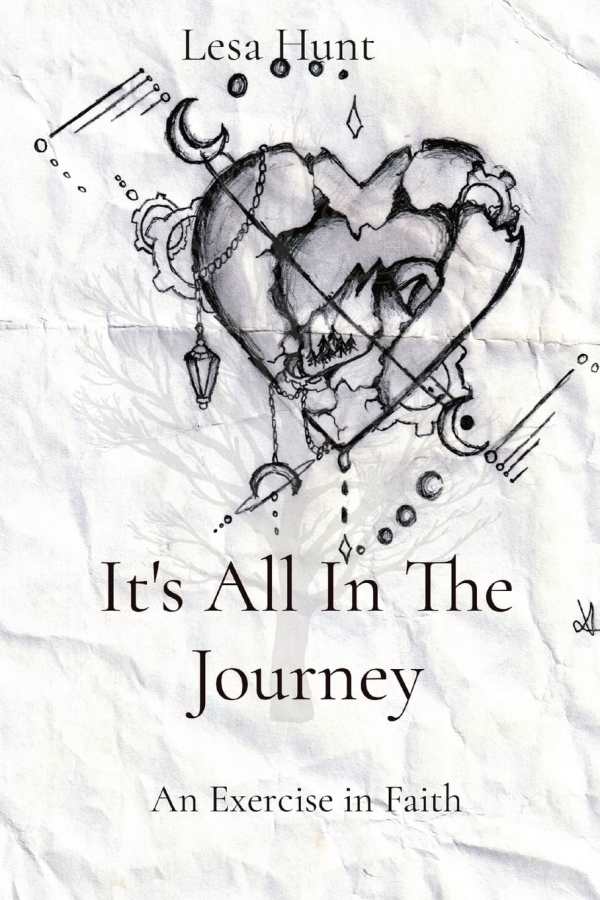It's All in the Journey
An Excercise in Faith
It’s All in the Journey is a powerful testimonial work about how God changes people’s lives for the better.
Lesa Hunt’s It’s All in the Journey is a heartbreaking religious book about how faith operates after a childhood of trauma and pain.
One of Hunt’s earliest memories is of a family member sexually abusing her when she was three years old. The book describes how her older siblings played sexual games with her and her other siblings, too, as with a demented version of Simon Says that often led to the children getting in bed together. The abuse continued for years.
From these experiences, the book considers how faith changes in the wake of terrible childhood events. Here, the scars from abuse “cause a blemish in our mind, a hole in our heart, and trauma that can live in the body for years.” Hunt discusses how these hidden scars manifested themselves in her own life, including in the form of her “masking” herself around others to disguise her pain.
For Hunt, God and spiritual work were useful for addressing hidden memories, helping her to not just survive abuse but overcome it. Indeed, Hunt argues that God, working through the Holy Spirit, allowed her to keep her mind intact. But she also writes that trying to discern why these horrible events happened no longer mattered once she found faith. In this way, the book evades addressing theodicy to instead praise God’s eternal faithfulness.
Still, the book’s arguments are most supported with personal anecdotes that may not be applicable to all. It chronicles instances of rape, incest, and other abuse in heart-wrenching detail, but its outward work comes most in the form of the questions and prompts that appear at the end of each chapter. In these spaces, readers can do their own discernment.
Occasional scriptural references are a further source of general support, as when the book upholds hope as a technique via the First Epistle of John’s description of God overcoming the work of the devil. However, there are few original flourishes in the book’s treatment of biblical material. It leaves the scriptures to speak for themselves, contributing little additional commentary or context.
The prose is dense, with long paragraphs that commingle abuse details with thoughts about God and the Bible. Its chronological approach, which begins with childhood abuse and progresses to drug abuse and a suicide attempt, leads to an emotionally overwhelming opening. Further, the book’s singular focus on relaying events often clouds its spiritual insights. And while the final chapters of the book explore the challenge of believing in God in the wake of trauma, they are somewhat inconclusive: Hunt writes that while bad things happen, God is present through them all and understands.
It’s All in the Journey transforms Hunt’s harrowing life experiences into a powerful testimony to the power of Jesus to change people’s lives for the better.
Reviewed by
Jeremiah Rood
Disclosure: This article is not an endorsement, but a review. The publisher of this book provided free copies of the book and paid a small fee to have their book reviewed by a professional reviewer. Foreword Reviews and Clarion Reviews make no guarantee that the publisher will receive a positive review. Foreword Magazine, Inc. is disclosing this in accordance with the Federal Trade Commission’s 16 CFR, Part 255.

